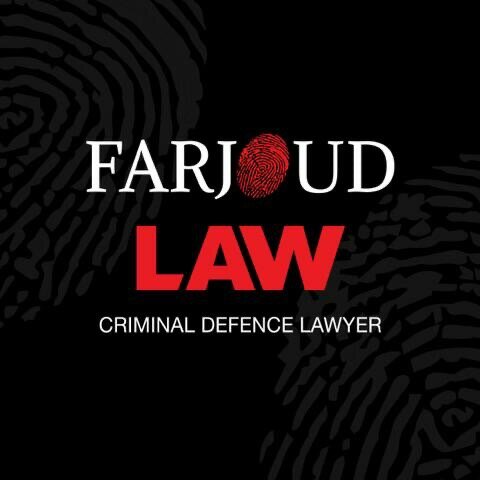Best Juvenile Law Lawyers in Oshawa
Share your needs with us, get contacted by law firms.
Free. Takes 2 min.
List of the best lawyers in Oshawa, Canada
About Juvenile Law in Oshawa, Canada
Juvenile Law in Oshawa, Canada, falls under the broader jurisdiction of Canadian laws concerning youth and criminal justice. It primarily deals with individuals under the age of 18 who are accused of committing a criminal offense. Juvenile Law focuses on rehabilitation and reintegration rather than punishment, aiming to help young offenders become responsible members of society. It is guided by the Youth Criminal Justice Act (YCJA), which establishes how juveniles should be treated within the judicial system and emphasizes the protection of their rights.
Why You May Need a Lawyer
There are several situations where retaining a lawyer experienced in Juvenile Law can be essential:
- Criminal Charges: If a juvenile is charged with a criminal offense, a lawyer can provide critical support in navigating the legal system and ensuring their rights are upheld.
- Investigations: Legal advice may be necessary if a juvenile is under investigation for alleged criminal activity.
- Custody Issues: When issues arise concerning the custody of a juvenile offender, legal expertise is invaluable.
- Appeals: If there is a need to appeal a decision made in juvenile court, a lawyer can formulate the necessary legal strategy.
- Preventive Assistance: A lawyer can provide preventive legal advice to help a juvenile avoid situations that could lead to criminal charges.
Local Laws Overview
Local laws relevant to Juvenile Law in Oshawa are primarily derived from the Youth Criminal Justice Act (YCJA) and the laws of Ontario. Here are some key aspects:
- Age of Responsibility: Juveniles under 12 cannot be charged with a crime. Those aged 12 to 17 fall under the YCJA.
- Diversion Programs: The YCJA encourages alternative measures such as community service or counseling rather than formal court proceedings.
- Privacy Protections: The identity of juvenile offenders is protected to prevent stigma and aid rehabilitation.
- Custodial Sentences: Incarceration is considered a last resort, with a focus on community-based sentences and rehabilitative measures.
- Parental Involvement: Parents or guardians are often involved in the youth justice process to support the juvenile's rehabilitation.
Frequently Asked Questions
1. What age group does Juvenile Law cover?
Juvenile Law in Oshawa applies to individuals aged 12 to 17 at the time of the alleged offense.
2. Can juveniles be tried as adults?
In exceptional cases, youths aged 14 and older who are accused of very serious crimes may be tried in adult court.
3. What is the purpose of the Youth Criminal Justice Act (YCJA)?
The YCJA aims to protect the public by holding young offenders accountable while promoting their rehabilitation and reintegration into society.
4. Are juvenile court records public?
No, juvenile court records are generally confidential to protect the privacy of young offenders.
5. What types of sentences can juveniles receive?
Sentences can include community service, probation, rehabilitative programs, or, in serious cases, custodial sentences in youth facilities.
6. Can parents attend court proceedings?
Yes, parents or guardians are usually encouraged to attend court proceedings to support the young offender.
7. What are extrajudicial measures?
These are alternatives to formal court proceedings, such as cautioning, mediation, or referral to community programs.
8. Can a juvenile criminal record be sealed?
Yes, juvenile records may be sealed or expunged after the individual reaches adulthood and meets certain criteria.
9. Do juveniles have the right to legal representation?
Yes, juveniles have the right to a lawyer, and if they cannot afford one, legal aid may be available.
10. What happens if a juvenile reoffends?
Repeated offenses can lead to more severe penalties, including potential transfer to adult court for very serious crimes.
Additional Resources
For more information and support, consider the following resources:
- Legal Aid Ontario: Provides legal assistance for those who cannot afford a lawyer.
- The John Howard Society of Ontario: Offers programs and services aimed at rehabilitating young offenders.
- Ministry of Children, Community and Social Services: Oversees programs related to youth justice in Ontario.
- Durham Region Legal Clinic: Provides free legal services and advice to residents of Oshawa.
Next Steps
If you need legal assistance in Juvenile Law, consider taking the following steps:
- Consult a Lawyer: Find a lawyer specializing in Juvenile Law. Many offer free initial consultations.
- Contact Legal Aid: If legal fees are a concern, apply for assistance through Legal Aid Ontario.
- Gather Documentation: Collect any relevant documents, such as court notices, police reports, and witness statements.
- Stay Informed: Educate yourself on your rights and the juvenile justice process to better navigate the legal system.
Lawzana helps you find the best lawyers and law firms in Oshawa through a curated and pre-screened list of qualified legal professionals. Our platform offers rankings and detailed profiles of attorneys and law firms, allowing you to compare based on practice areas, including Juvenile Law, experience, and client feedback.
Each profile includes a description of the firm's areas of practice, client reviews, team members and partners, year of establishment, spoken languages, office locations, contact information, social media presence, and any published articles or resources. Most firms on our platform speak English and are experienced in both local and international legal matters.
Get a quote from top-rated law firms in Oshawa, Canada — quickly, securely, and without unnecessary hassle.
Disclaimer:
The information provided on this page is for general informational purposes only and does not constitute legal advice. While we strive to ensure the accuracy and relevance of the content, legal information may change over time, and interpretations of the law can vary. You should always consult with a qualified legal professional for advice specific to your situation.
We disclaim all liability for actions taken or not taken based on the content of this page. If you believe any information is incorrect or outdated, please contact us, and we will review and update it where appropriate.









